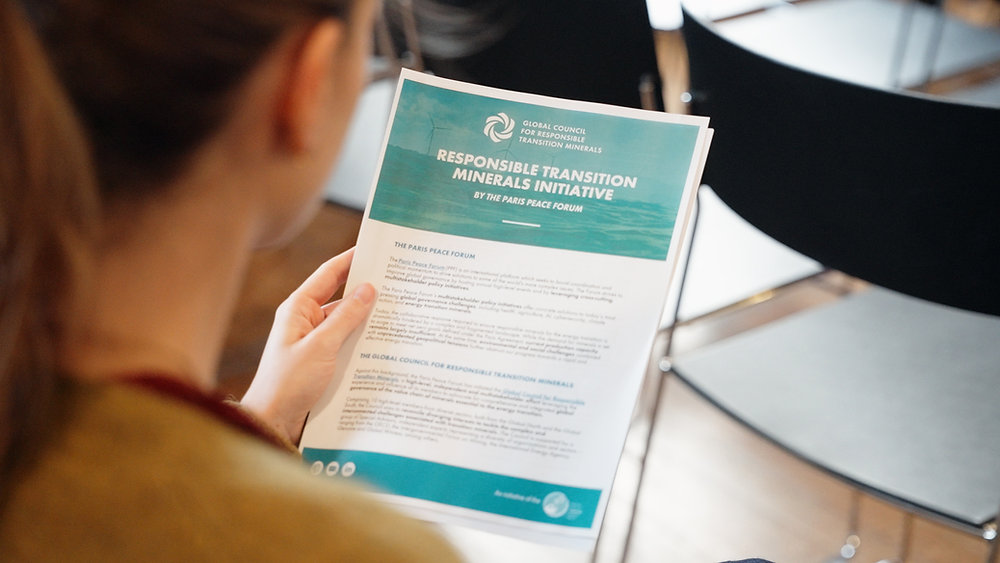

G7 Standards-Based Markets: The Council's Call to Ensure High Standards Without Fragmenting Markets
17 nov. 2025
The acceleration of the energy transition is driving a sharp increase in mineral demand while exposing concentrated and fragmented supply chains. In this context, G7 leaders are promoting standards-based markets, to ensure responsible operations and minerals maintain market access and benefit from investment, as part of their June 2025 Critical Minerals Action Plan focused on transparency, diversification, security, sustainability, trustworthiness and reliability of resilient critical minerals supply chains, and a roadmap adopted on October 31st.
The Global Council for Responsible Transition Minerals, an independent and multi-stakeholder group advocating for a collaborative global governance approach to transition minerals stakes, welcomes renewed attention to responsibility and resilience in mineral value chains. Leveraging the experience of its members across all aspects of global mineral finance, operations and policy, the Council offers the following considerations to help shape this concept in a constructive, inclusive manner.
1) Uphold credible high standards.
Raising the bar on responsibility in mining, processing and trade is crucial to the resilience of global mineral value chains. That effort should be anchored in credible implementation: transparent monitoring, traceability and enforcement that build trust along the chain. Efforts should reflect environmental and social criteria as well as economic integrity (anti-corruption, fair benefit-sharing, and value creation at source).
2) Build on existing standards as listed in the G7 roadmap.
A standards-based approach should leverage and interoperate foundational frameworks and established tools, standards, guidance as well as recognized mine-site and sourcing schemes, while filling proven gaps of data interoperability and assurance. This continuity will minimize compliance fragmentation and accelerate uptake.
3) Avoid weaponization and fragmentation.
Standards must not become de facto trade barriers or geopolitical instruments that split markets into a small “premium” tier and a larger “low-cost” tier. Such fragmentation, as well as weaponization of supply chain dependencies for non-commercial objectives, can only result in costlier, riskier and overall slower transition.
4) Engage beyond the G7.
A standards-based approach will only be legitimate and efficient if it is co-designed with producer countries and emerging hubs. Structured dialogue with the G20, BRICS, Gulf economies and major producers should be part of the process, alongside meaningful participation by Indigenous peoples, local communities, unions and civil society. Implementation should be progressive and accompanied by realistic roadmaps and capacity support to include smaller actors, including artisanal and small-scale miners (ASM).
5) Foster responsible industrialization for sustainable development.
Partnerships should systematically embed shared development priorities, enabling infrastructure, decent work, community rights and benefit-sharing, so minerals become catalysts for industrial development. This economic dimension is integral to diversification of both supply and markets.
6) Foster responsible investment in transition minerals.
The Global Council welcomes the acknowledgement by G7 leaders of the need to accelerate public and private investments in mining industries. Clearer expectations and greater predictability from mineral markets are essential but insufficient to unlock capital. Complementary de-risking tools, including public-private cooperation towards shared development priorities, are needed to attract institutional investment to mining and minerals. Multilateral development banks, Development Finance Institutions and other sovereign investors have a pivotal role to play in building trust and defining shared development goals.
Together, these elements can provide a pathway to ensuring high standards without fragmenting markets, and to making responsible minerals a bridge to shared prosperity rather than a new divide. Beyond the G7, these discussions should be held in a broader consultative framework and ultimately formalized in an International Agreement on the Management of Mineral Resource, as recommended by the Global Council in its 2024 Report.

